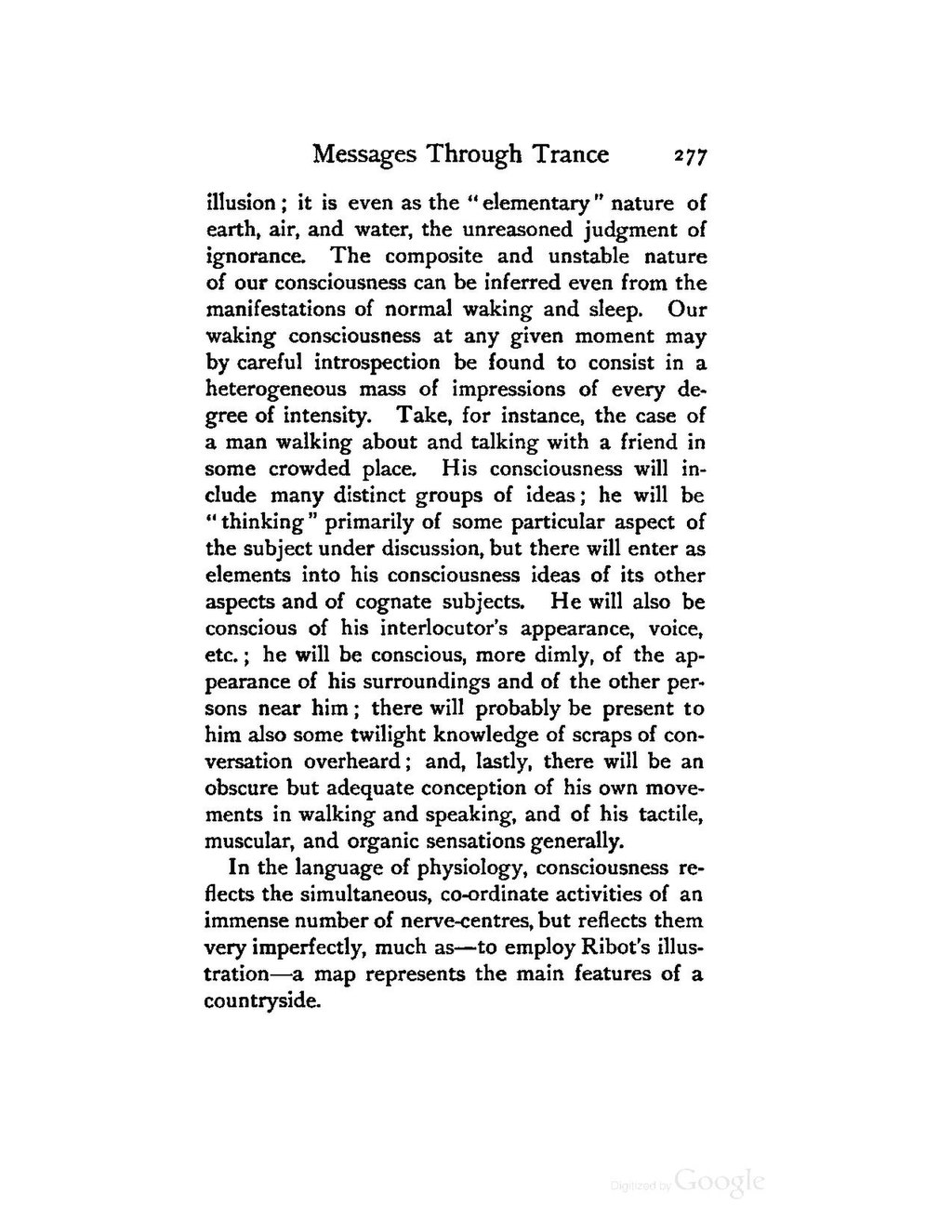illusion; it is even as the "elementary" nature of earth, air, and water, the unreasoned judgment of ignorance. The composite and unstable nature of our consciousness can be inferred even from the manifestations of normal waking and sleep. Our waking consciousness at any given moment may by careful introspection be found to consist in a heterogeneous mass of impressions of every degree of intensity. Take, for instance, the case of a man walking about and talking with a friend in some crowded place. His consciousness will include many distinct groups of ideas; he will be "thinking" primarily of some particular aspect of the subject under discussion, but there will enter as elements into his consciousness ideas of its other aspects and of cognate subjects. He will also be conscious of his interlocutor's appearance, voice, etc.; he will be conscious, more dimly, of the appearance of his surroundings and of the other persons near him; there will probably be present to him also some twilight knowledge of scraps of conversation overheard; and, lastly, there will be an obscure but adequate conception of his own movements in walking and speaking, and of his tactile, muscular, and organic sensations generally.
In the language of physiology, consciousness reflects the simultaneous, co-ordinate activities of an immense number of nerve-centres, but reflects them very imperfectly, much as—to employ Ribot's illustration—a map represents the main features of a countryside.

